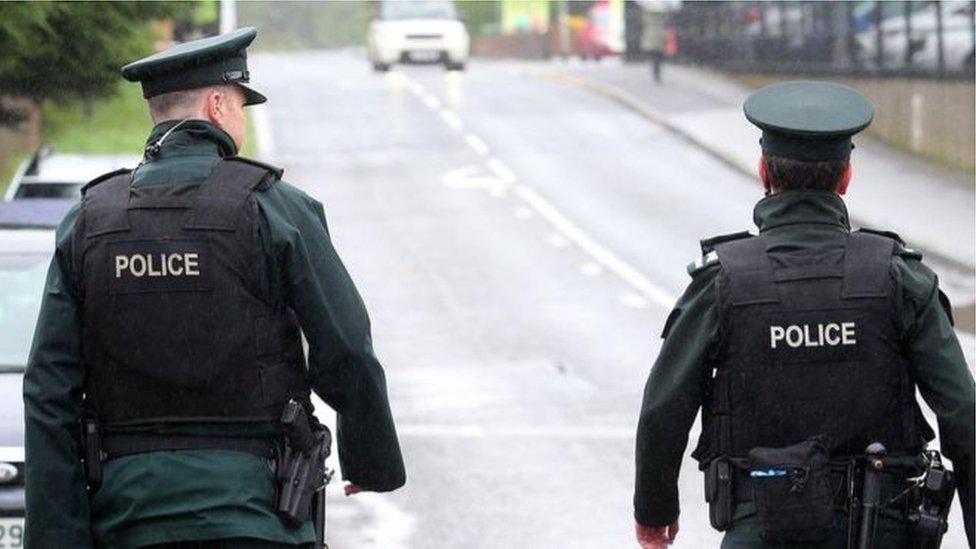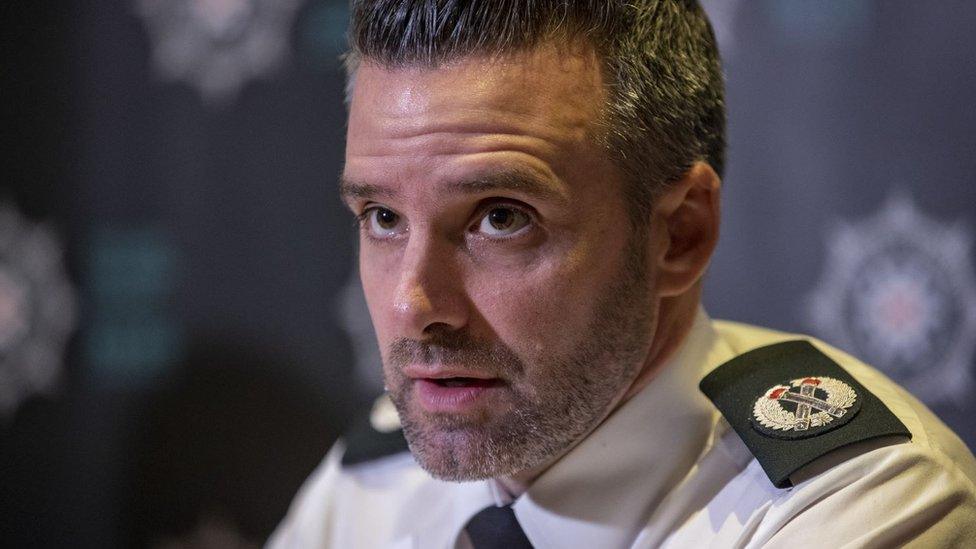PSNI: Report flags concern over neighbourhood policing
- Published

An inspection report has raised concern at a practice which sees neighbourhood police officers removed from core duties to plug gaps elsewhere.
A review by Criminal Justice Inspection (CJI) found some officers are spending just one or two days a month in their dedicated roles.
Instead they are being used for other duties, such as in custody suites or policing parades and other events.
The report calls for a review of the policy - known as abstraction.
Assistant Chief Constable Bobby Singleton responded to the report by saying it was "very timely and very helpful" and that the PSNI was "not surprised by the findings".
He said there was an "historical low" in the number of officers, "creating massive pressures".
CJI reported there were about 600 neighbourhood police officers at the end of last year, whom they praised for their dedication.
The figure is down by about 100 on 2022.
'Crisis point'
The Police Service of Northern Ireland (PSNI) has an overall officer headcount of about 6,400.
"There will always be a requirement on any public sector body to provide as efficient a service as they possibly can," ACC Singleton said.
"But I think we are way past that point - we are at the point now where the shortage in numbers could be as many as between 1500 and 2,000 police officers.
"Even just in that response function that we have, that one that responds to 999 and 101 calls we might be somewhere in the region of about 363 people short.
"So our operating model is completely unstable.
"That's why we see an unnatural drop coming across from neighbourhood policing in order to support these functions.
"We are really I feel at a crisis point in terms of the police officer numbers and in that respect I think this report is really welcome and timely."
'Spontaneous abstraction'
CJI Chief inspector Jacqui Durkin said: "The value of effective neighbourhood policing was a golden thread throughout the inspection.
"Community groups and representatives spoke highly about neighbourhood officers, noting that they were visible, accessible, responsive and community focused."
However, her report noted concerns about abstraction, some of which was labelled as "spontaneous", and called for more information on its scale and impact.

ACC Bobby Singleton said funding would determine the scale of neighbourhood policing
The PSNI defines abstraction as any activity which withdraws a neighbourhood officer from their core function within their area on a short, medium or longer term basis.
The CJI report stated an "increased focus" is required on protecting the function of neighbourhood policing.
The PSNI has previously indicated that a reduction in officer numbers, due to budget pressures, was largely to blame for the situation.
At a public meeting of the Policing Board in December, it pledged to limit it as much as possible.
Ms Durkin said she recognised financial pressures and "hard decisions" about priorities.
However, she said that in any tight budget environment it is "really important" that "priorities are really clear" and there is transparency about what that means.
"Working in partnership with the community was something that we all expected in a post-Patten environment, I think the visibility and the connections and partnerships that policing make in those local communities are vital, I think the role they play in various community forums in informing discussions about solutions are vital," she told BBC Radio Ulster's Good Morning Ulster programme.
"It would be really disappointing if we backtracked on that and we lost the ground gained."
In his statement, ACC Singleton said: "What a future policing budget looks like going forward will determine how much neighbourhood policing we can deliver.
"We are now in danger of having neighbourhood policing in name only."
Policing Board chair Deirdre Toner said board members shared the PSNI's concerns.
"The future viability of neighbourhood policing is questionable if officer numbers remain at current levels," she said.
"Investment is central to building safer communities. We fully support the chief constable in his lobby for the resources to properly deliver that."